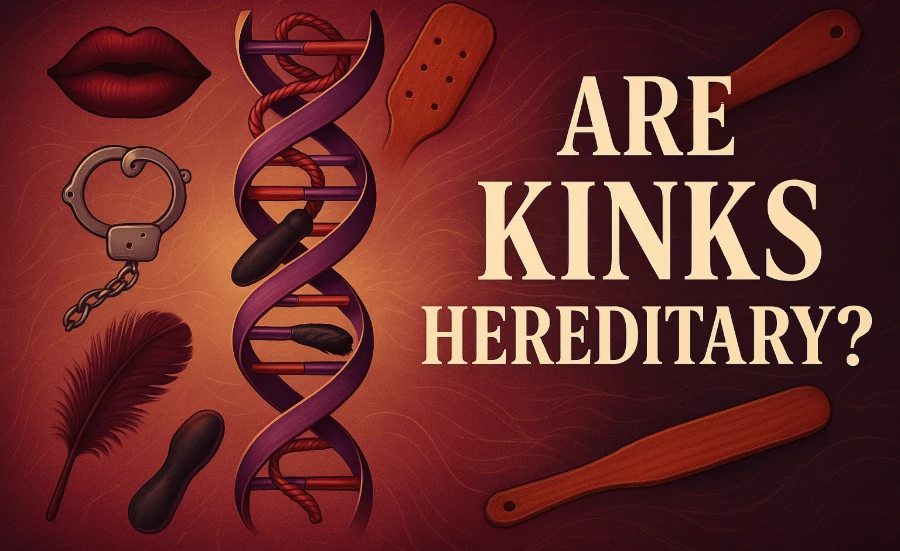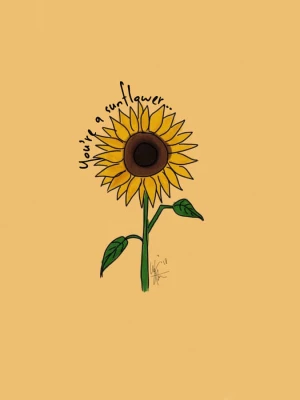Are Kinks Hereditary?
- 1 Collect
- 1 Like
- 408 Read
- Report


Keyword
Let’s start here: you’re without pants, scrolling through sex-positive blogs, asking if your kink came from your parents. That’s already hilarious and deeply brave.
Because yeah, this question feels cursed. Are you into bondage because your dad was strict? Did your praise kink hatch in Catholic school? Is there a masochist gene? Did your grandmother like being choked?
Stop. Breathe. Don’t call your therapist yet.
We’re not tracing your sexual desires like a family tree. But there is a reason you like what you like, and no, it’s not random.
There’s no “slut gene.” But your wiring matters.
Let’s get the science out of the way: there’s zero credible evidence that specific kinks are genetically inherited. You don’t get your spanking fetish from chromosome 13. But you do inherit traits that affect how you process sensation, emotion, and regulation.
Some people are born more neurodivergent, more prone to sensation-seeking or novelty-craving behavior. That’s been linked to genetics.
Some brains are more attuned to pain, or more reactive to dopamine. Some bodies are just built to feel more intensely.
Is that a kink? No. But it’s the nervous system that feeds your kinks like your window of tolerance, pressure, surrender, adrenaline, or control. That’s not nurture vs. nature, it’s nurture through nature. Biology doesn’t tell you what you’ll crave. It just sets the stage.
So where the hell do kinks come from?
From your history, wiring, body, and culture is where kinks come from. From the time you were twelve and saw something on screen that your chest never forgot, to the way your spine went electric the first time someone held your wrists down.
Your brain pairs emotion with sensation. Sometimes that pairing sticks so deep you don’t even realize it. It just… gets hot. That’s called erotic imprinting, and yes, that’s a real thing.
Erotic imprinting isn't always about trauma. Sometimes it’s about curiosity that never got an outlet. Sometimes it’s just a weird spark that stayed lit.
“But what if my kinks are trauma responses?”
Every smart, self-aware, emotionally alive kinkster has asked that. You’re not broken for wondering.
It’s true that some sexual kinks evolve in response to early experiences. But trauma ≠ dysfunction. What matters isn’t how your kink started, it’s how you use it now. Are you choosing it? Are you safe? Are you grounded when it happens and cared for after?
Plenty of people use BDSM to rewrite power, to regain control, to feel something that used to scare them in a space where they finally get to own it. That’s not pathology, instead it's healing through pleasure. And you’re allowed to want that.
Kink isn’t math. It’s chemistry.
And not the boring kind.
You don’t need a tragic backstory to love being degraded. You don’t need a strict childhood to crave discipline. You don’t need a science degree to say “fuck yes” when someone asks if they can tie you up and spit in your mouth.
But if you do want to understand yourself more deeply, don’t look for a genetic blueprint. Look for the places your body reacted before your brain did. Look for the moments that startled you... then leaned in where you felt a pull, ache, or pulse.
Some people want soft kisses and mutual eye contact. You want a belt, to be chocked, or someone calling you a filthy little toy while you whimper into their thigh.
That’s not inheritance, instead that’s sexual intelligence. Your body’s intelligence is telling the truth in a language that doesn’t give a fuck about logic.
So… are kinks hereditary?
No. Not like blue eyes or lactose intolerance.
But yes in the sense that your biology sets the frame. And your body remembers what turned it on, even when you try to forget.
So stop asking if you “got this from someone.” Start asking if you want it. If it makes your breath go shallow and your thighs twitch and your brain shut off in that perfect, sacred way that says this is mine.
That’s your kink.
Own it.


